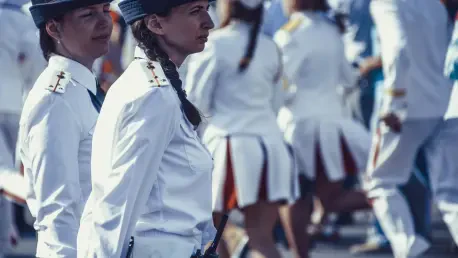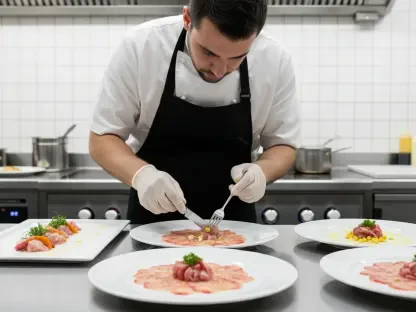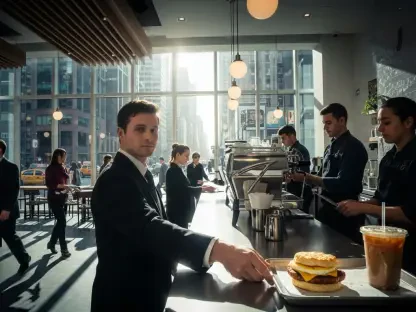In the wake of the tragic vehicular attack at the Lapu Lapu festival in Vancouver, which claimed 11 lives and left 32 others injured, Toronto is taking decisive action to bolster security for its upcoming summer festivities. A recent summit highlighted the critical need for increased safety measures at public events and brought together approximately 150 festival organizers, event planners, and security experts to explore potential solutions. This initiative underscores the importance of collaboration between emergency services and event producers, with a focus on implementing hostile vehicle mitigation strategies. These measures aim to create a safer environment and include the use of concrete blocks or city buses as protective barriers.
Toronto’s Mayor, Olivia Chow, emphasized the need for resilience and the continuation of cultural events despite emerging security concerns. While acknowledging the lessons learned from the tragedy in Vancouver, she reaffirmed the city’s commitment to robust safety plans. Important figures at the summit, such as Charlotte Brookes and Steve Adelman, shared insights into the effectiveness of various vehicle mitigation barriers. However, the discussion also highlighted the significant financial implications of these security measures. The rising costs have become a pressing issue for event organizers, necessitating innovative solutions to ensure both security and the continuation of vibrant cultural expressions.
Addressing Financial Challenges
In response to these challenges, Toronto has decided to increase its funding for festival security to $2.1 million. This significant financial boost aims to lessen the financial burden on festival organizers, allowing them to allocate resources to enhancing safety protocols without compromising the quality and execution of the events. Furthermore, Toronto has introduced a competitive grant process to assist festivals in managing safety overheads effectively. This initiative is designed to enable organizers to access essential funding while maintaining high safety standards. The proposed grant system will support festivals in their efforts to create secure and enjoyable experiences for attendees, despite the increasing cost pressures.
Beyond this financial commitment, the summit emphasized the potential benefits of the city investing in communal safety equipment. By owning resources such as barriers and security devices, Toronto could establish a rental system that allows festival organizers to access necessary equipment without bearing the high initial costs. This approach would provide a sustainable solution to the demand for heightened security, ultimately making it affordable for smaller events to implement effective protective measures. By sharing the burden of equipment expenses, the city could help ensure that all festivals, regardless of size, have equal access to security resources, promoting a safer and more inclusive cultural scene.
Collaboration and Future Considerations
The summit also explored collaborative strategies to sustain Toronto’s vibrant festival culture amid increasing safety challenges. Suggestions included forming a dedicated festivals association to act as a collective voice for event organizers and advocate for necessary resources and policy support. Such an organization could serve as a central hub for sharing best practices, coordinating security efforts, and fostering strong partnerships between the city, organizers, and security professionals. Additionally, the summit highlighted the importance of enhancing event planning resources as a means to reinforce event safety. By equipping organizers with comprehensive planning tools and expertise, they can more effectively anticipate and address potential security threats.
Despite the complex financial and logistical challenges outlined at the summit, there was a unified consensus that securing public safety without stifling cultural expression is imperative. This balance demands innovation, resourcefulness, and a commitment from both government and private sectors. The discussion stressed that efforts to maintain safe public events must be supported by broader government initiatives, ensuring community activities remain a vibrant and integral part of urban life. By investing in security and fostering collaboration, Toronto aims to ensure that its festivals remain safe, welcoming, and dynamic experiences for all attendees.
Future Steps for Secure and Vibrant Festivals
Following the devastating vehicle attack at Vancouver’s Lapu Lapu festival, which resulted in 11 fatalities and 32 injuries, Toronto is proactively enhancing security for its summer events. A recent summit emphasized the urgent need for tighter safety protocols at public gatherings, bringing together around 150 festival organizers, event planners, and security specialists to discuss viable solutions. This initiative highlights the crucial partnership between emergency services and event organizers, with a focus on hostile vehicle mitigation techniques like using concrete blocks or city buses as barriers.
Mayor Olivia Chow stressed the importance of resilience and maintaining cultural events despite security challenges. She reiterated Toronto’s dedication to strong safety planning, drawing on lessons from Vancouver’s tragedy. Key figures like Charlotte Brookes and Steve Adelman shared experiences about effective mitigation barriers. The dialogue also noted the considerable financial burden these measures pose, prompting a search for innovative approaches to ensure security without compromising cultural vitality.









